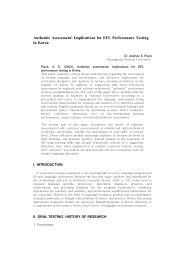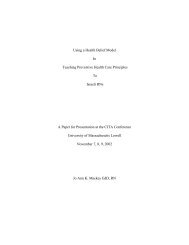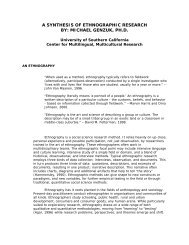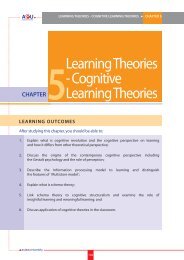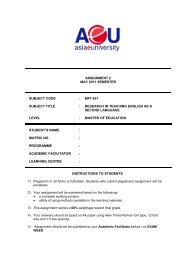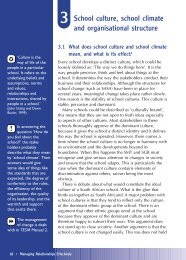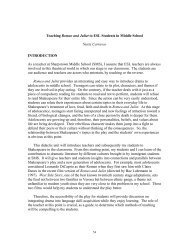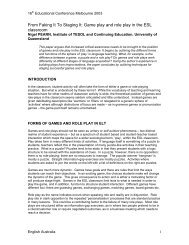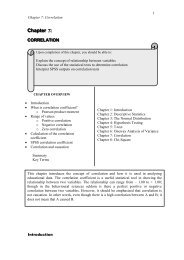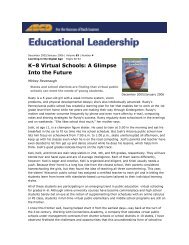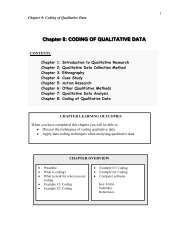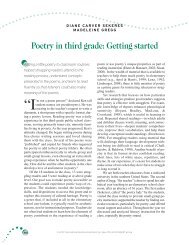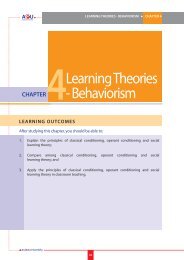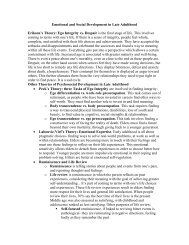Learning Theories - Cognitive Learning Theories CHAPTER
Learning Theories - Cognitive Learning Theories CHAPTER
Learning Theories - Cognitive Learning Theories CHAPTER
Create successful ePaper yourself
Turn your PDF publications into a flip-book with our unique Google optimized e-Paper software.
<strong>CHAPTER</strong> 5 l LEARNING THEORIES - COGNITIVE LEARNING THEORIES<br />
5.9 APPLICATION Of COGNITIVE THEORIES IN THE<br />
CLASSROOM<br />
Teachers can apply concepts from cognitivists in the classroom to enhance their students<br />
understanding. The steps taken are discussed below.<br />
Meaningful learning<br />
• Teachers need to promote more effective learning, the teacher need to link new information<br />
to familiar information.<br />
• Example: If teacher want to teach about rice plantation, it is advisable for him to organize<br />
trip to Sabak Bernam where rice are planted or show them video showing rice plantation<br />
in Sabak Bernam.<br />
dual coding theory<br />
• Guide students to process information using dual coding theory.<br />
• Dual coding theory suggests that we remember better when two processes are engage:<br />
visual learning and verbal learning.<br />
Schema theory<br />
• Engage student in schema theory while teaching.<br />
• This theory suggested that our prior knowledge can facilitate or enhance transfer of<br />
learning.<br />
• Example: In teaching account, teacher may use prior knowledge or formula they have<br />
learned earlier in mathematics.<br />
Phases of learning<br />
• Gagne (1985) translated the information-processing model into an instructional model<br />
called “phases of learning.”<br />
• As detailed in Table 5.1 Gagne (1985) parallels information processing with instructional<br />
events.<br />
Internal Process Instructional Event Action Example<br />
Reception Expectancy<br />
Retrieval to<br />
Working memory<br />
1. Gaining attention<br />
2. Informing learners of<br />
the objective.<br />
3. Stimulating recall of prior<br />
learning.<br />
131<br />
Use abrupt stimulus change.<br />
Tell learners what they will<br />
be able to do after learning.<br />
Ask for recall of previously<br />
learned knowledge or skills.<br />
i.<br />
131



